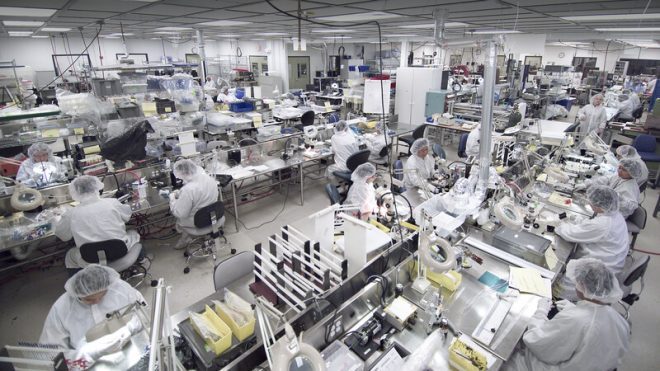
5 Basic principles to avoid typical manufacturing pitfalls
Congratulations! You’ve conceptualized and prototyped a functional medical device that will improve the lives of countless others!
So now what? Market approval? Sales? Praise and adulation???
Let’s hold those thoughts while we discuss the elephant in the room called manufacturing.
Product design is just one-step in the sprint towards market launch. I try to inform manufacturing neophytes that product design and manufacturing design are 1:1 endeavors; 6 months of product design requires 6 months of manufacturing design, which will not include regulatory approvals.
To quote a famous car company owner on his recent foray into manufacturing, “The difficulty and value of manufacturing is underappreciated”, “it’s maybe 100 times harder to design the manufacturing system than the car itself”.
Many business hopefuls and product designers alike have learned these lessons much too late in the process. We can look to the failings of Bricklin, DeLorean, and Studebaker as case studies. They assumed the product design was the bulk of the effort and targeted a product release date that they could not meet. They did not balance the wants of design with the needs of manufacturing. They did not respect the manufacturing process or establish minimum thresholds for quality. In the end, they all suffered from the same misstep: Underestimating the complexities of manufacturing that sent their products to the what-could-have-been hall of fame.
So what basic principles do we use to avoid typical manufacturing pitfalls? Below are a few tenets I like to preach:
- “If it wasn’t documented, it didn’t happen”. This famous quote attributed to the Office of Human Research Protections says you must provide evidence to support your claims; no evidence, no claims. All medical devices require traceability, which is a paper trail to demonstrate that the right part was made, and that the part was made right. It includes inspection and performance results, who did what, when, and by who’s authority. A running joke I had with a customer was that they buy paperwork and get a medical device as a bonus prize (ie. the documentation required more labour than the design).
- “In God we trust. All others must bring data”. A second quote to instill the need for evidence comes from the godfather of quality, Edward Deming. The use of statistics in manufacturing is imperative and should be collected throughout the manufacturing process. Data helps define and predict product performance. I recommend the book “Statistical Procedures for the Medical Device Industry” by Dr. Wayne Taylor to everyone. It has useful statistical rule-of-thumbs with recommendations on how to minimize test requirements that reduce costs, labour, and time to market.
- “If you can’t measure it, you can’t improve it”. Peter Ducker had this right, whether we’re talking about incoming inspection, accounting, project management, or marketing. Every process can be improved and the sooner you figure out how the better off you’ll be.
- “Everyone works for quality”. Quality is not the responsibility of the person wearing a QA hat or logging hours to the QA department. It is the job of every participant throughout the process. Shipping / receiving, auditing, inventory, assembly, test…. Everyone is a contributor to the final product and customer success.
- “An ounce of prevention is worth a pound of cure”, or rather $1 of prevention can be worth $10 of cure. All too often manufacturing reminds us that it must be considered early and weighted equally to product design. If designers are too focused on reducing part costs, we overlook potential savings in manufacturing. For example, a single-piece component might cost three times as much as the two assembled components it replaces, but that increased cost becomes attractive when you discover it costs 30x more to inspect, assemble, and scrap the two pieces. An experienced manufacturing group will evaluate design-cost trade-offs and ensure cost efficiencies across the entire product platform.
Manufacturing is a complex entity with many facets and avenues to consider. If you respect the manufacturing process, your company will reap the benefits.
Glen Farrell is the Manufacturing Program Manager at StarFish Medical. Glen has twenty years of experience in Medical Device development and manufacturing. He has helped build medical device start-ups with several successful FDA andHealth Canada submissions. Skilled in new product introduction, process development, and quality management, Glen has launched dozens of new products into the Biotech, Defense, and Marine markets.